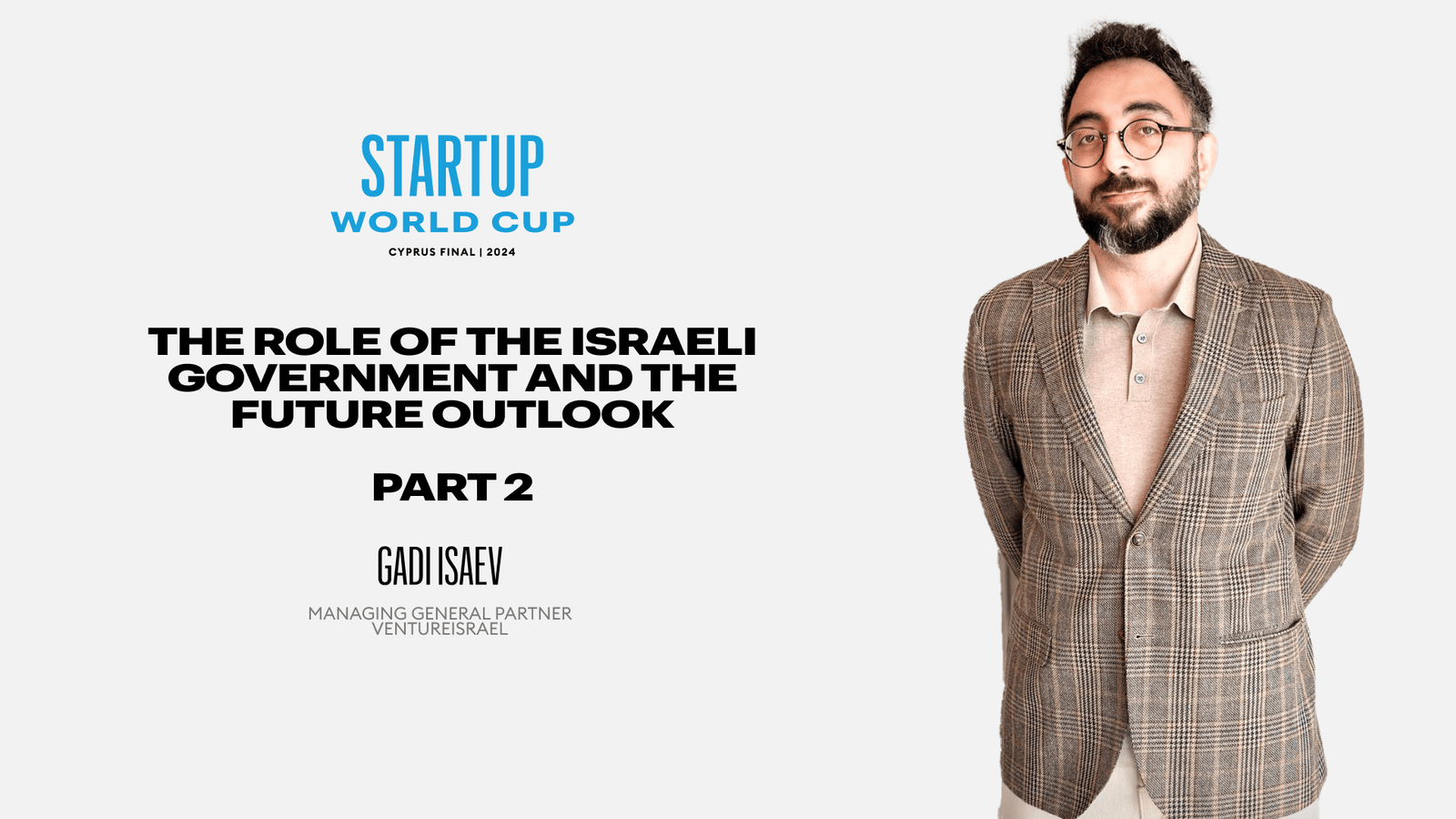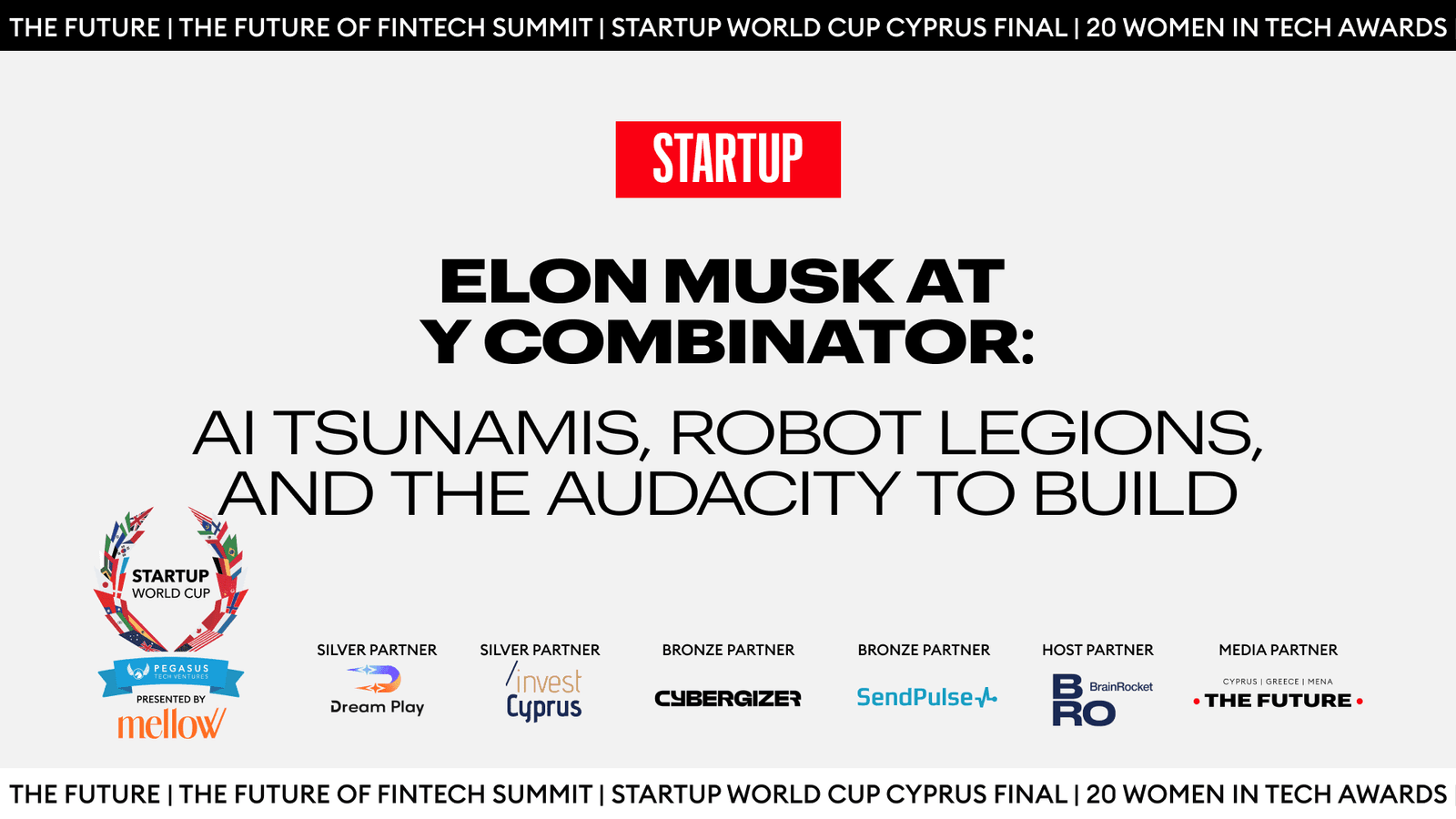As our conversation progresses with Gadi Isaev in the second part of the interview (Part one of the interview is here), the spotlight shifts to the pivotal roles played by the Israeli government and military in nurturing the nation’s vibrant startup ecosystem. With initiatives such as the Israeli Innovation Authority’s $1 billion program and the unique training ground provided by the Israeli Defense Forces, Israel solidifies its commitment to fostering innovation and entrepreneurship.
This steadfast support, coupled with a culture of multistakeholder collaboration that propels Israel to the forefront of global competitiveness, ensures a resilient and dynamic ecosystem poised for continued growth and dominance in key sectors such as cybersecurity and artificial intelligence.
Follow THE FUTURE on LinkedIn, Facebook, Instagram, X and Telegram
Despite regional challenges, Israel’s unwavering dedication to innovation promises a future marked by transformative breakthroughs with far-reaching implications for industries worldwide.
Government and Military Involvement
How do the Israeli state and the Ministry of Defense contribute to the startup ecosystem? And why do many individuals transition from military service to entrepreneurship?
The Israeli government, through entities like the Israeli Innovation Authority (IIA), has been a cornerstone in supporting and nurturing the startup ecosystem for years. The IIA offers a wide array of programs, including grants, the establishment of accelerators and incubators, and other initiatives aimed at fostering innovation. In early 2024, the IIA announced a significant new program to support the Israeli ecosystem, with a budget of over $1 billion. This level of state involvement underscores the strategic importance placed on innovation and technology as drivers of economic growth and global competitiveness.
The role of the Israeli Defense Forces in this ecosystem is equally pivotal. Often compared to acquiring an MBA in terms of the skills and experiences it provides, military service in Israel is a unique proving ground for leadership, problem-solving, and technical expertise. Graduates of elite technology units emerge with valuable networks, reputations, and firsthand experience in dealing with high-stakes situations.
While many of these individuals initially transition to corporate roles, gathering further business acumen, the entrepreneurial drive for challenging, fast-paced environments eventually leads many to launch their ventures. This transition from military service to entrepreneurship is a well-trodden path, contributing to the dynamism and resilience of the Israeli startup landscape.
Collaboration with Corporations and Universities
Could you discuss the significance of collaborations between startups, corporations, and universities in Israel?
Israel’s top position in the Global Competitiveness Ranking for Multistakeholder collaboration underscores the unique ecosystem where startups, corporations, universities, financial institutions, the government, and the military not only coexist but thrive together. This interconnectivity is largely because individuals often transition between these sectors throughout their careers, fostering a shared understanding and language.
This cross-pollination of ideas and experiences enhances the collaborative process, ensuring that all parties speak the same language and align towards a singular mission. This environment facilitates seamless collaborations, enabling rapid advancements and the successful implementation of cutting-edge solutions.
Resilience Amidst Regional Instability
How has the Israeli startup ecosystem adapted to ongoing regional tensions and the impact of war?
The Israeli startup ecosystem’s response to this war showcases its remarkable resilience and unity. Amidst the challenges, where founders and team members were called to service, every company strove to maintain operational continuity. This collective effort bore fruit, with Israeli startups raising over $3 billion in investments and witnessing M&A transactions exceeding $3.7 billion since the onset of the conflict. Venture capital funds also saw nearly $2 billion in new inflows, underscoring the ecosystem’s durability and investor confidence.
Additionally, the commitment of international corporations to Israel remained unshaken, with none withdrawing their operations. Instead, many initiated special support programs for their Israeli employees and partners, further solidifying the ecosystem’s strength and the global community’s support. Besides, It’s important to remember, that the Middle East hasn’t been stable for many decades, and that hasn’t stopped Israel from making a breakthrough and being in today’s leadership position.
Based on your extensive experience, how do you see the Israeli startup ecosystem evolving in the coming years?
Based on the current trajectory and inherent strengths of the Israeli startup ecosystem, it’s reasonable to expect that Israel will continue to solidify its dominance in sectors where it already excels, such as cybersecurity, artificial intelligence, semiconductor technology, and food-tech. The Israeli market is mature, functioning as a dynamic marketplace for corporate innovations.
The primary challenge for the ecosystem will be to maintain its leadership positions in these competitive, fast-evolving fields. In an environment where technological advancements occur at an unprecedented pace, staying ahead means not just keeping pace with global trends but often setting them. This necessitates continuous innovation, investment in research and development, and fostering an environment that encourages risk-taking and supports the growth of startups.
Given its track record, the Israeli startup ecosystem is well-positioned to meet these challenges and continue thriving in the coming years, potentially leading to breakthroughs that could further reshape industries worldwide.
P.S. Editor’s note: According to the latest World’s Most Startup-Friendly Countries, 2024 study, Israel is in 4th place, with Cyprus in 56th place.










